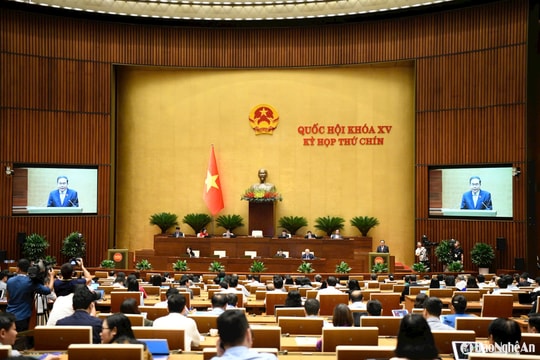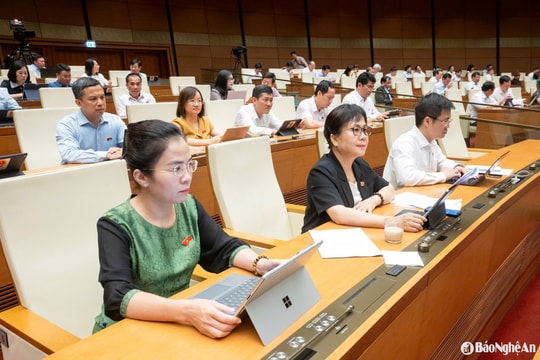The National Assembly passed the Law on Cadres and Civil Servants (amended) with many notable new regulations.
With 418/423 National Assembly delegates participating in the vote in favor (reaching 99%), on June 24, the National Assembly passed the Law on Cadres and Civil Servants (amended).
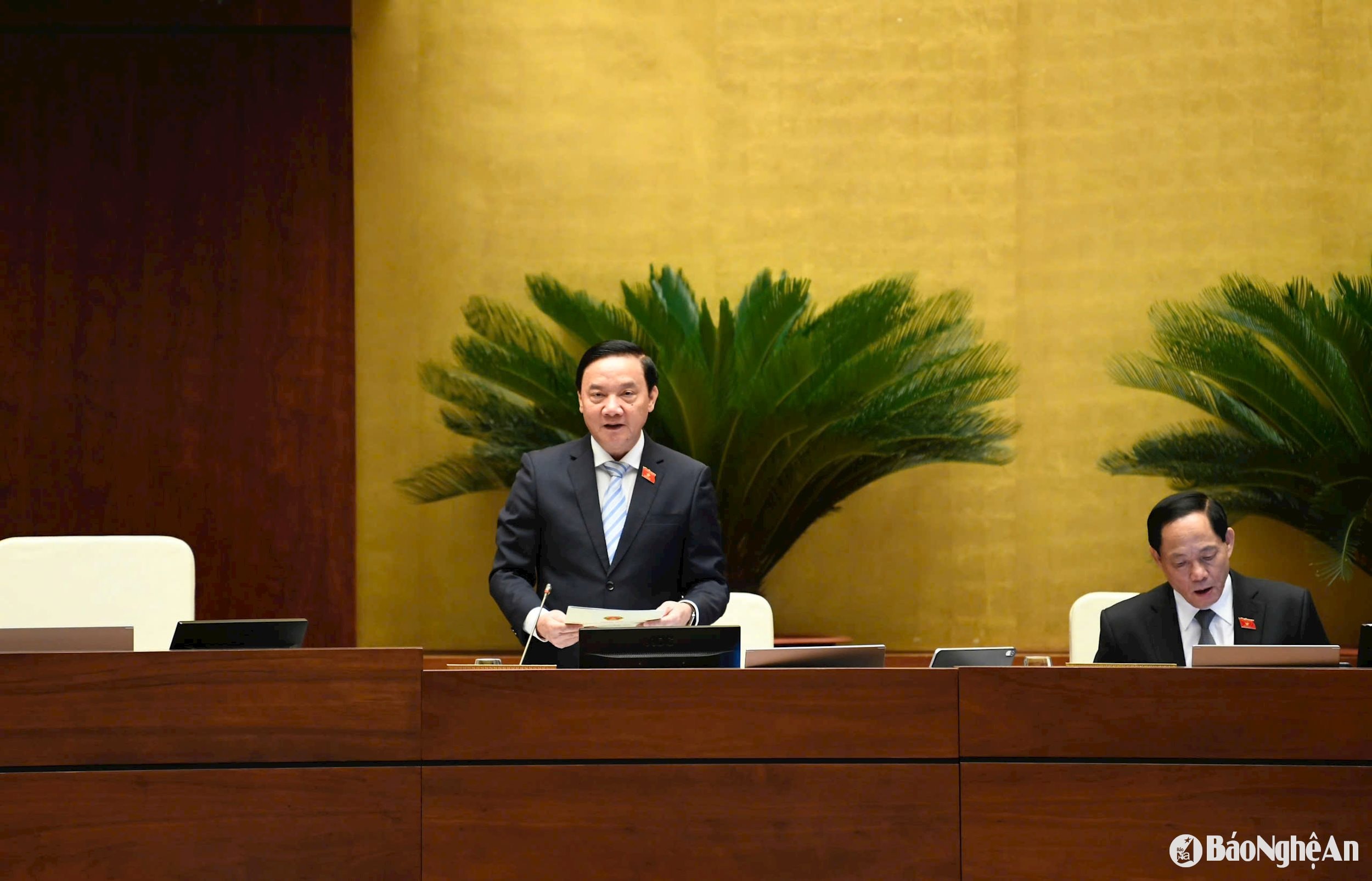
Tighten public discipline
The Law consists of 7 chapters and 45 articles, clarifying the concept and position of cadres and civil servants; fully regulating rights, obligations, responsibilities and prohibited acts.
The law defines that cadres are Vietnamese citizens who are elected, approved, appointed or designated to hold positions and titles for a term in agencies of the Communist Party of Vietnam, the State, the Vietnam Fatherland Front, socio-political organizations at the central, provincial and communal levels, on the payroll and receiving salaries from the state budget.
Civil servants are defined as Vietnamese citizens, recruited to work in agencies of the Communist Party of Vietnam, the State, the Vietnam Fatherland Front, socio-political organizations at the central, provincial and communal levels; in agencies and units of the People's Army that are not officers, professional soldiers, workers or defense officials; in agencies and units of the People's Public Security that are not officers, non-commissioned officers, soldiers serving under the professional regime, or police workers; in cryptographic organizations that are not people doing cryptographic work, on the payroll and receiving salaries from the State budget.
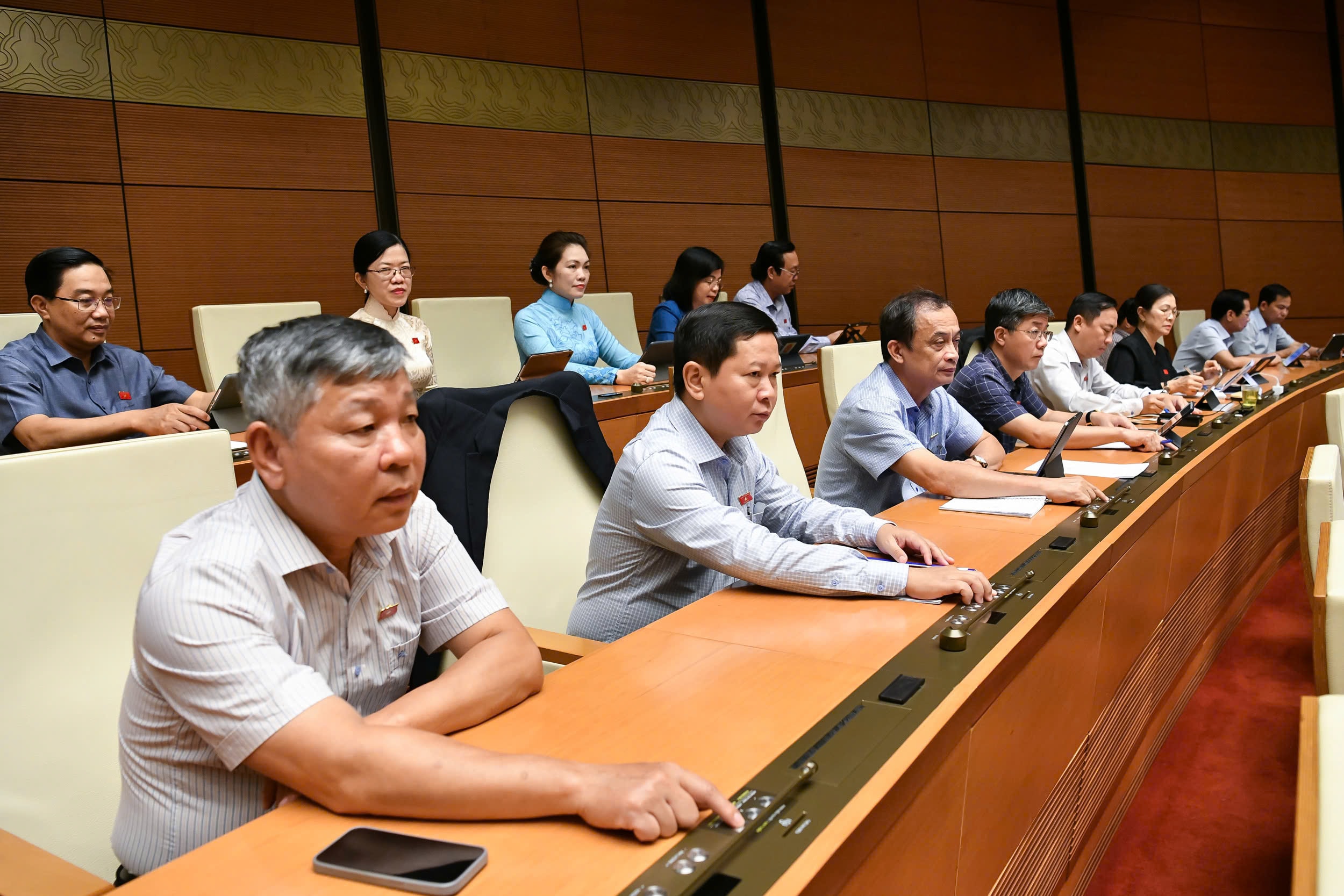
The law stipulates that cadres and civil servants are assigned authority commensurate with their duties, are guaranteed working conditions, equipment, means, are arranged or rented public housing; have access to information related to work; participate in training and development; and are protected by law when performing public duties.
In particular, cadres and civil servants working in areas with particularly difficult socio-economic conditions or working in toxic and dangerous environments will enjoy preferential policies and allowances.
The law also tightens public discipline, prohibiting acts of evading, avoiding, or shirking duties; causing factionalism and disunity; arbitrarily quitting work, participating in strikes; and spreading false information that affects the reputation of the nation, locality, or agency.
Officials and civil servants are prohibited from engaging in acts of corruption, negativity, waste, profiteering, harassment, and discrimination in the performance of public duties in any form.
3 channels to attract talent to the public sector
Presenting the previous report on acceptance and explanation, Minister of Home Affairs Pham Thi Thanh Tra said that the process of revising the draft Law has institutionalized the policy of building a unified and interconnected civil service from the central to communal level.
One of the important contents is to transform the method of managing cadres and civil servants according to job positions, taking positions as the center, linking with results and work products as the basis for recruitment, arrangement, evaluation, appointment, planning and training.
The law, for the first time, clearly stipulates the mechanism for attracting high-quality human resources and talented people into the public sector. Accordingly, there are three forms of attraction: accepting civil servants; signing contracts with good businessmen, experts, scientists, lawyers, and jurists to perform leadership or professional tasks; recruiting under contracts to perform some specialized tasks.
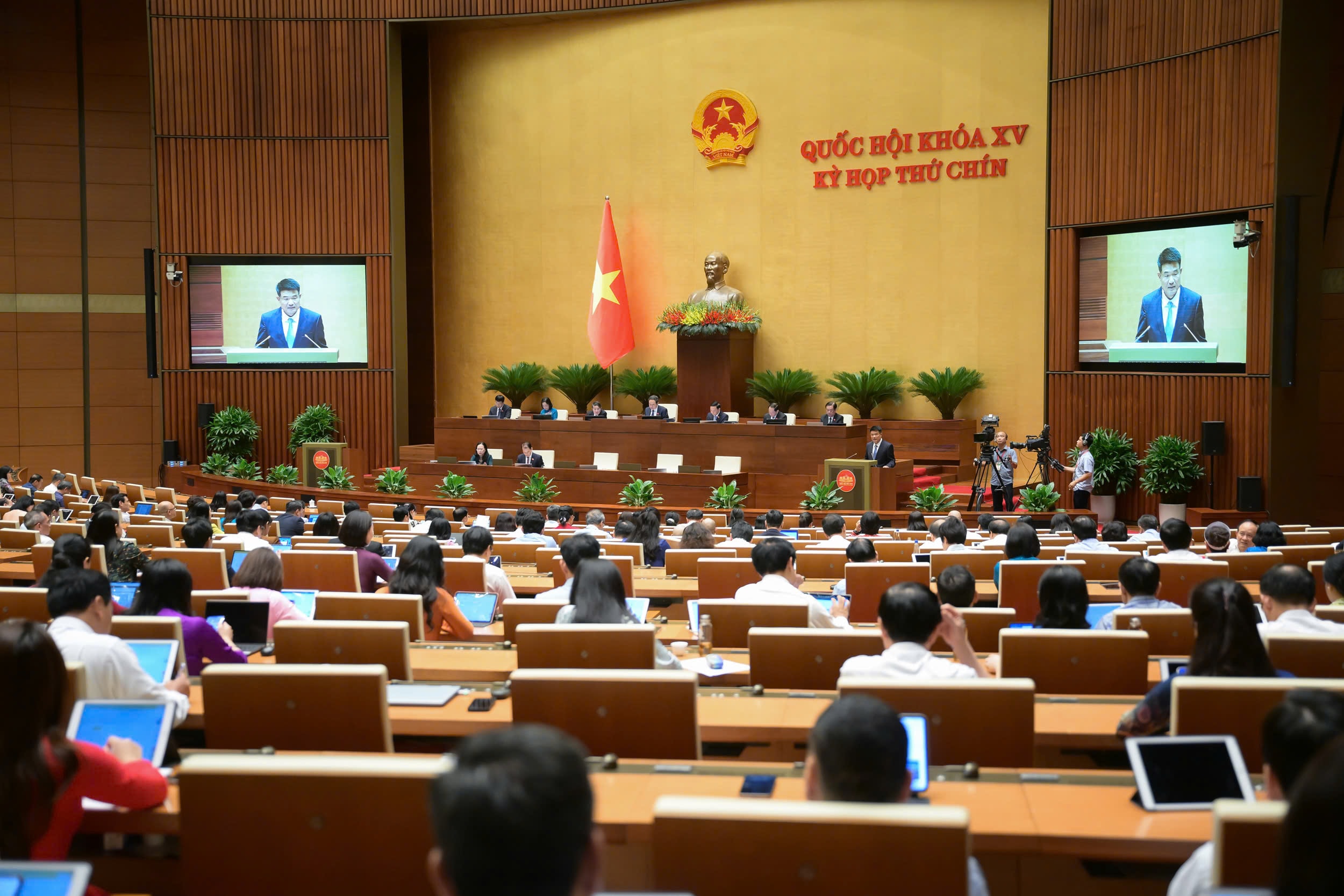
Also on the working day, the National Assembly voted to pass the Law amending and supplementing a number of articles of the Law on Vietnamese Nationality; the Law amending and supplementing a number of articles of the Law on Organization of People's Courts; the Law amending and supplementing a number of articles of the Law on Organization of People's Procuracies; and the Law amending and supplementing a number of articles of the Law on Election of National Assembly Deputies and People's Council Deputies.
The National Assembly passed a Resolution on piloting the People's Procuracy in initiating civil lawsuits to protect the civil rights of vulnerable groups or to protect public interests; a Resolution on the mechanism for handling difficulties and obstacles due to legal provisions; and a Resolution of the National Assembly on the National Assembly's Supervision Program in 2026.
The National Assembly also discussed in the hall the draft Law on Mutual Legal Assistance in Criminal Matters; the handling of debt collection sources of policy credit programs funded by the State budget that have expired at the Vietnam Bank for Social Policies; visa exemption for foreigners who are in special need of preferential entry into Vietnam; and the results of monitoring the settlement of voters' petitions sent to the 8th Session of the 15th National Assembly.
The National Assembly also held separate meetings on organizational and personnel work under its authority.


